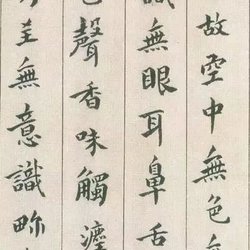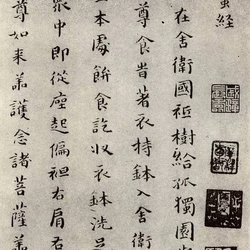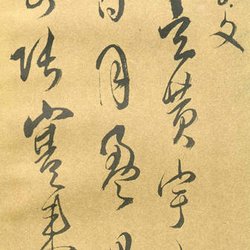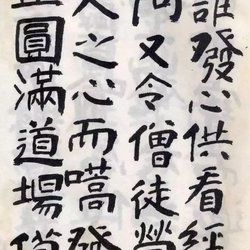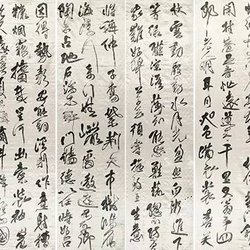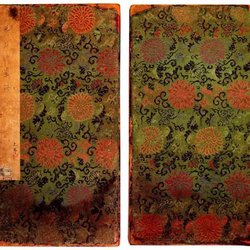
Fu Shan's running script banner
Compared with Yan Zhenqing in the Tang Dynasty and Huang Daozhou in the late Ming and early Qing Dynasties, Zhao Mengfu's behavior was naturally "rebellious and insubordinate, wretched and boneless", and his calligraphy was naturally implicated. Xiang Mu, a calligraphy theorist of the Ming Dynasty, commented on his calligraphy He said: Zhao Mengfu's book is gentle and elegant, and seems to be inherited from the right line of Youjun. It is charming and delicate, but lacks the spirit of not taking away the important points. Feng Banye of the Qing Dynasty said: Zhao Shu's craftsmanship was so good that he was approaching the right army, but his strength and strength were not as good as those of the Song Dynasty.
For those who can evaluate Zhao Mengfu's calligraphy historically and developmentally, Fu Shan's comments in his later years are fairly fair.

Fu Shan's cursive script "Ge Tie"
Fu Shan seriously studied Zhao Mengfu's calligraphy in his youth. However, after the fall of the Qing Dynasty and the Ming Dynasty, Fu Shan could not let go of his hatred for the destruction of the country. He turned to extremely despise Zhao Mengfu, his enemy, and could not tolerate Zhao Mengfu's disloyal behavior. He warned his descendants: "I dislike Zhao Zi'ang very much, and I despise his calligraphy because I despise him as a person. I despise his calligraphy as if it were shallow and vulgar." This means that because he despises his person, he despises his calligraphy. This kind of evaluation also belongs to the perspective of judging people from books.
However, with the increasingly consolidated rule of the Qing Dynasty and the gradual formation of the Kangxi and Qianlong dynasties, we witnessed the gradual stability and prosperity of society. Compared with the chaos and decadence of the late Ming Dynasty, Fu Shan had to rethink.
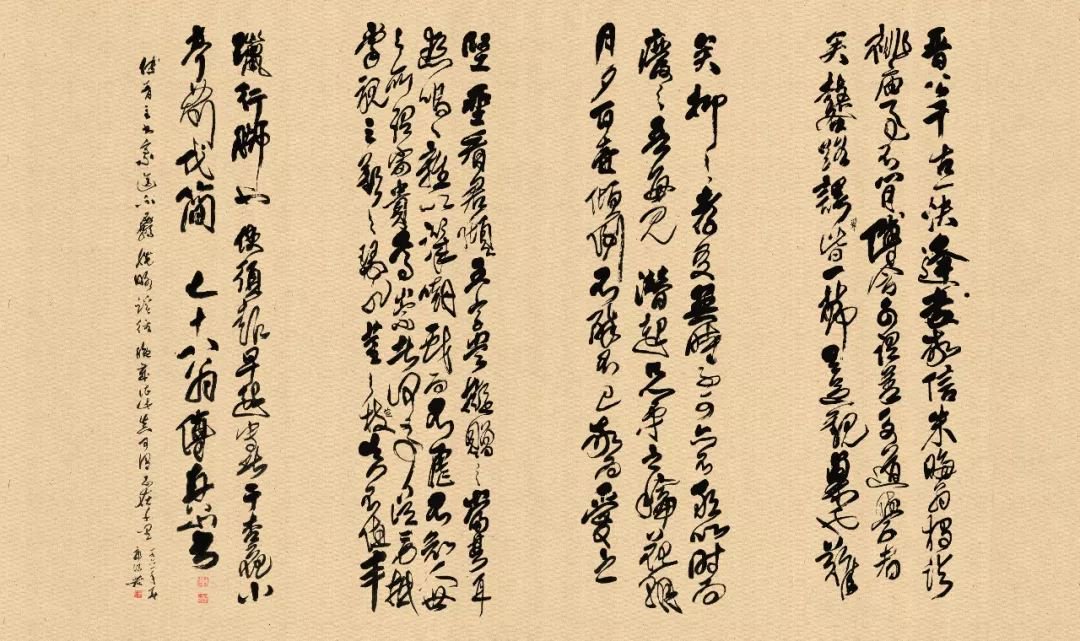
Fu Shan Jin Gong Eternal One Fast Four Screens
Fu Shan wrote this in his poem "Bing Candle":
Holding the candle and sighing, the person wants to have his heart broken.
Zhao Si is really amazing, and the steward is also very good.
He is still drunk when he is drunk, and he gets even crazier as he gets older.
There is only one remaining stroke left, where can I post the article?
The words "surprising and extraordinary" are used in the poem to fully express the poet's admiration for Zhao Mengfu. At this time, Fu Shan began to look at Zhao Mengfu rationally. The reason may be that the rule of the Qing Dynasty gradually consolidated, and the history of the fall of the Ming Dynasty has become an unchangeable reality; perhaps Fu Shan realized the difficulty and important historical significance of an intellectual-literary person in passing on culture from generation to generation.
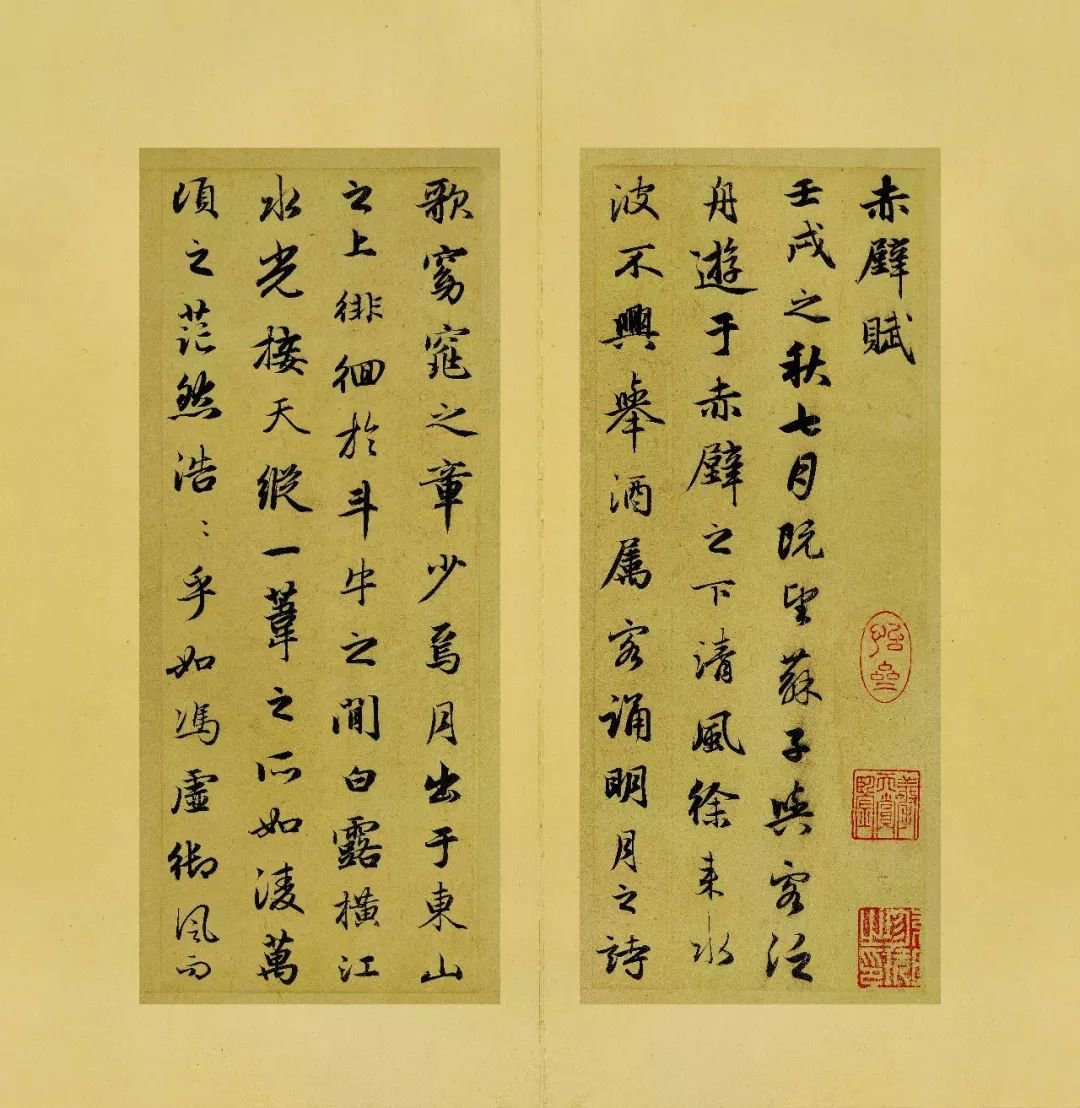
"Red Cliff Ode" by Zhao Mengfu
In any case, at this time, Fu Shan may have realized how valuable it was for Zhao Mengfu to pin his ideals and ambitions on the pen in his hand. In this poem, Fu Shan still fairly recognized the superb artistic achievements of Zhao Mengfu and his wife. It also contained Fu Shan's recognition of the general trend of the Ming Dynasty's demise, which was a profound understanding of the passing on of Han culture from generation to generation. Compared with a crumbling corrupt previous dynasty, the prosperity of the country and the people are more important to the people.
Zhao Mengfu, although he was a first-rank official in the Yuan Dynasty, had a prominent position. However, his life is tragic. The pain that accompanies him throughout his life is not the failure to recognize his talent, but the self-blame and guilt in his heart. The huge rock that squeezes his heart all the time is none other than the Confucian ethics that he is too familiar with and understands. He clearly knew that what he had done as a leader was completely contrary to this norm, and his soul was being whipped by this whip all the time. The pain of the soul is the greatest pain. Who can tell me this?
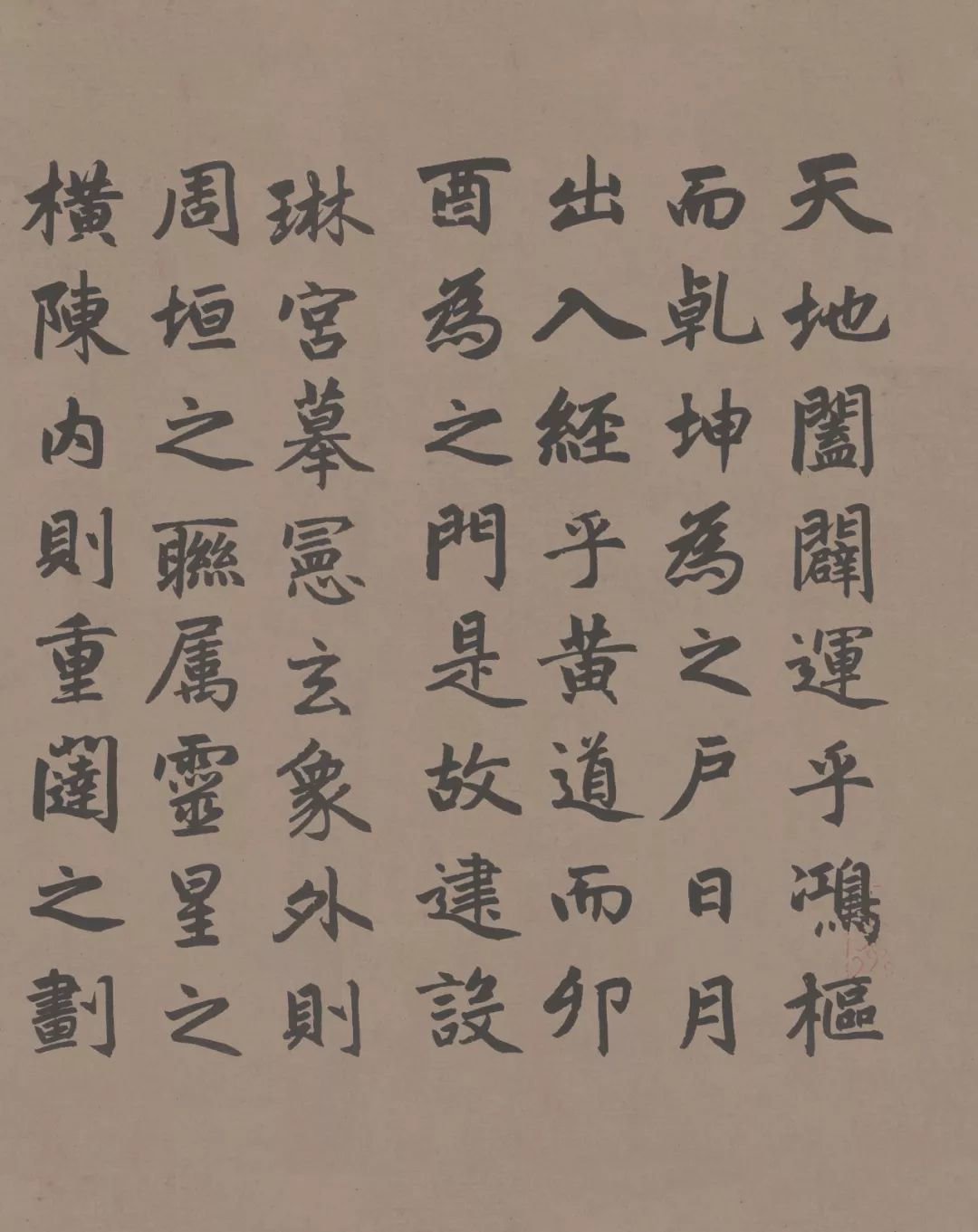
When Zhao Mengfu was 33 years old, he was received by Kublai Khan, the founder of the Yuan Dynasty, in the capital of the Yuan Dynasty. The young Zhao Mengfu was so excited that he couldn't help but feel a little elated, so he said: "The scholars are young and learn at home, and Gai also wants to use it. country." But given the political climate of the time, he soon came to regret it. At the age of thirty-seven, he had been in Beijing for four years and wrote the poem "Falling into the dust by mistake, spending four springs in Beijing". Later, he composed a poem called "Gui Chu", in which the sadness in his heart was beyond words:
In the mountains it is Polygala, and out of the mountains it is grass.
As the old saying goes, it's not too early to see the bitterness of things.
I wish to go alone in my life, and the hills and valleys will hold me in my arms.
You can entertain yourself when you are reading, and you can protect yourself when you are wild.
Who caused me to fall into the dust net and be entangled gracefully?
What used to be a gull on the sea is now like a bird in a cage.
Lament who looks back, the hairy feathers are dying day by day.
In this poem, Zhao Mengfu's inner conflict and pain are very obvious. This painful mood cannot be expressed to others, so he took his wife and became a devout Buddhist disciple. He could only seek help from Buddhism. relief.
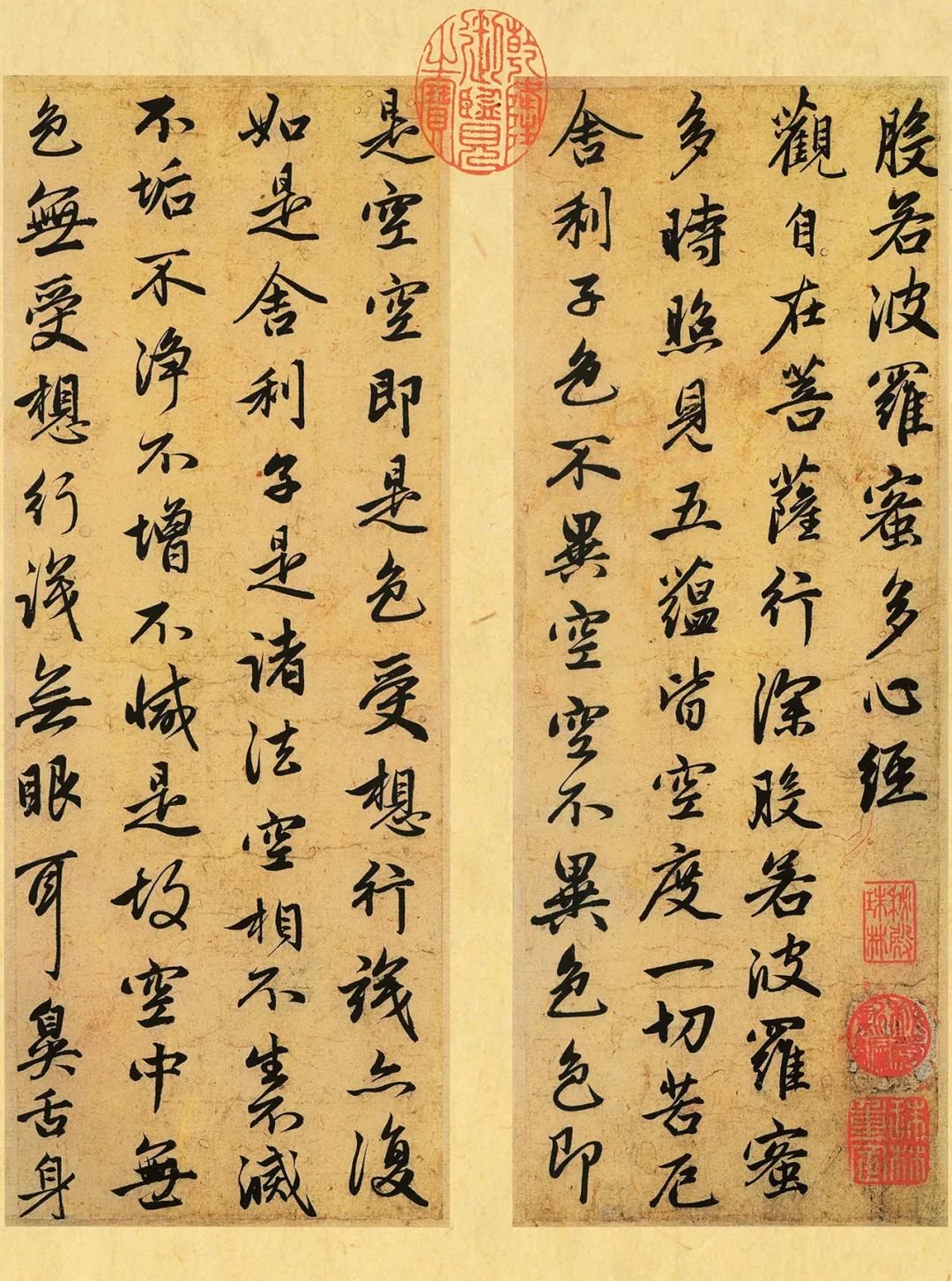
Zhao Mengfu had no way to change the reality. He could only lament the hardships of the world in his poems. He also wrote a poem:
Where is the fame? Wealth and security are enough.
Only after a hundred years can the writing be passed down to the world.
For example, if a stream is born with spring water, it must be determined and fulfilled.
Reciting Yuan Ming's poems leisurely and studying Youjun's calligraphy quietly.
At this time, Zhao Mengfu was able to calm down, read ancient poems, imitate the calligraphy styles of the Wei and Jin Dynasties, and devote himself to the art of calligraphy. This has become Zhao Mengfu's spiritual sustenance to get rid of his inner pain. In the first year of Yuanzhen, Kublai Khan, the founder of the Yuan Dynasty, passed away. Zhao Mengfu finally returned to his hometown of Wuxing, where he had been away for many years, on the pretext of being ill. Zhao Mengfu lived in the south of the Yangtze River for four years. He was without an official position and was very light. He was deeply attached to the mountains and rivers and felt quite at ease. However, when I looked back on my life, I couldn't help but feel sad and wrote another poem:
A sixty-three-year-old boy with chipped teeth is always ashamed of everything in his life.
Only the remaining pen and inkstone are still there, and they are left to make jokes with the world.
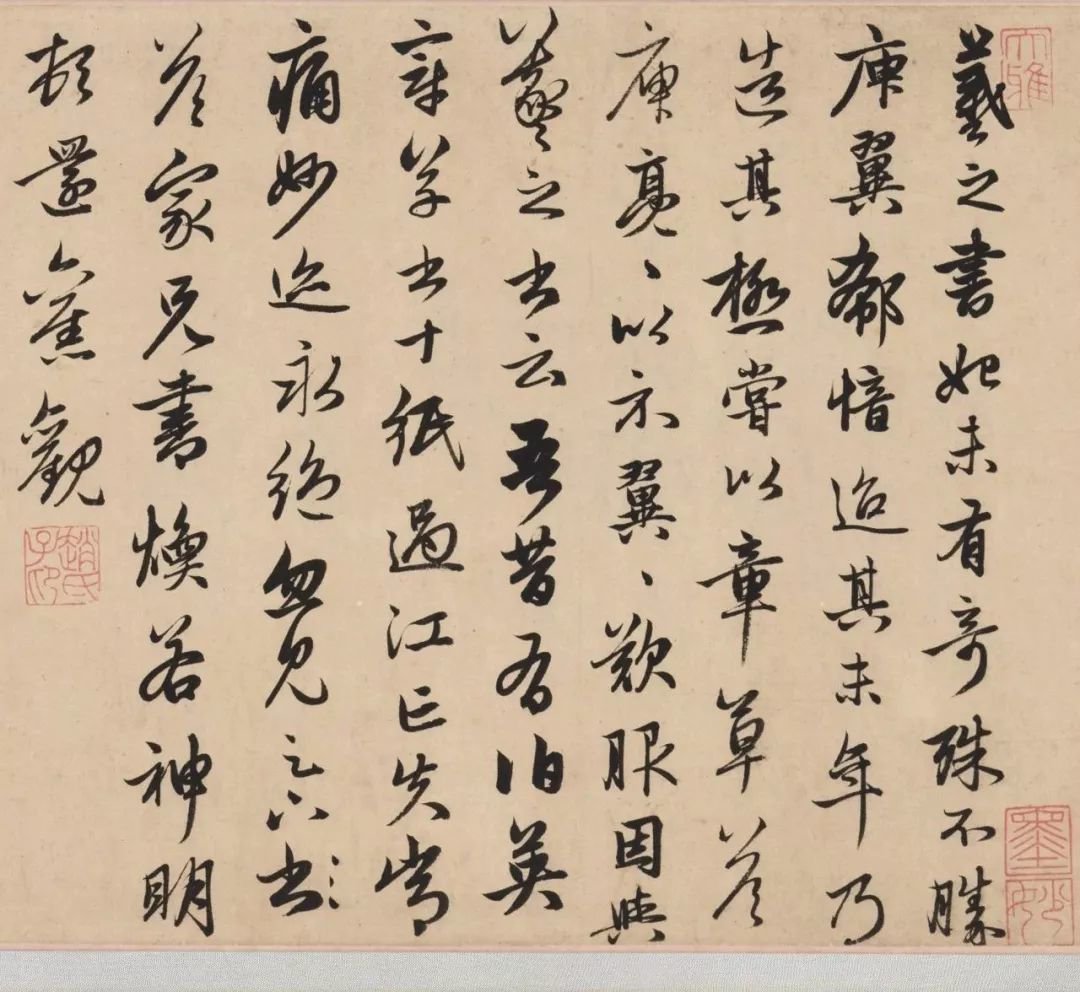
He had lost all his teeth and hair. In his sixty-three years of life, he had accomplished nothing except calligraphy and painting, which was enough for masturbation. He felt extremely ashamed. His wife Duan Sheng wrote lyrics to persuade him:
The noblest thing in life is to be a prince, and fame and fortune are not free.
It's like a fight, a small boat, singing in the wind and making the moon go back to rest.
In 1322, Zhao Mengfu died without illness at the age of 69. His calligraphy was unparalleled in elegance and beauty, and later generations described his calligraphy as: "The flesh is not boneless, and the tendons are not exposed. Although the posture is charming, the waves are mature. For example, the jade ring with full muscles can be used as a neon dance, but it is not intoxicating." "Zhao Shu is a typical example of graceful beauty, just like the harmonious beauty of Wang Xizhi's calligraphy and the graceful beauty of Yan Zhenqing's calligraphy, which are unparalleled.
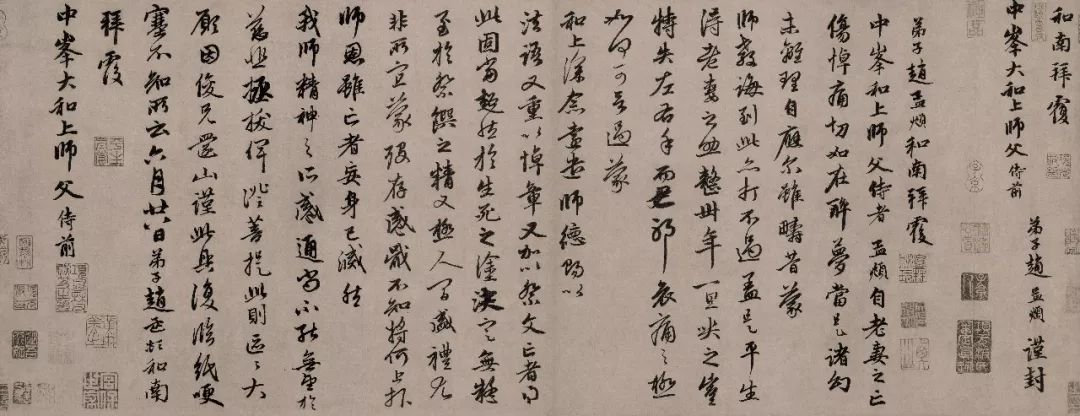
Zhao Mengfu set up a monument in the history of Chinese calligraphy. The Mongolian army conquered the Southern Song Dynasty, and Zhao Mengfu conquered the descendants of the Great Khan with his excellent Han culture, ensuring that the fire was never extinguished and the ancient methods were preserved. For such a person who worked hard and brought the meager strength of a literary man to the extreme, what else can people ask for?
Maybe Fu Shan also understood Zhao Mengfu's psychological process in this way, or maybe he knew more. In his later years, Fu Shan understood Zhao Mengfu based on his own personal experience. That's why he sighed sincerely. Only then can he "hold the candle and sigh deeply," and only then can he think that "the other person" has reached the point of "heartbreaking". Only then would he think that Zhao Shu was "extraordinary", and even Duan Guo's promotion was "extraordinary".

